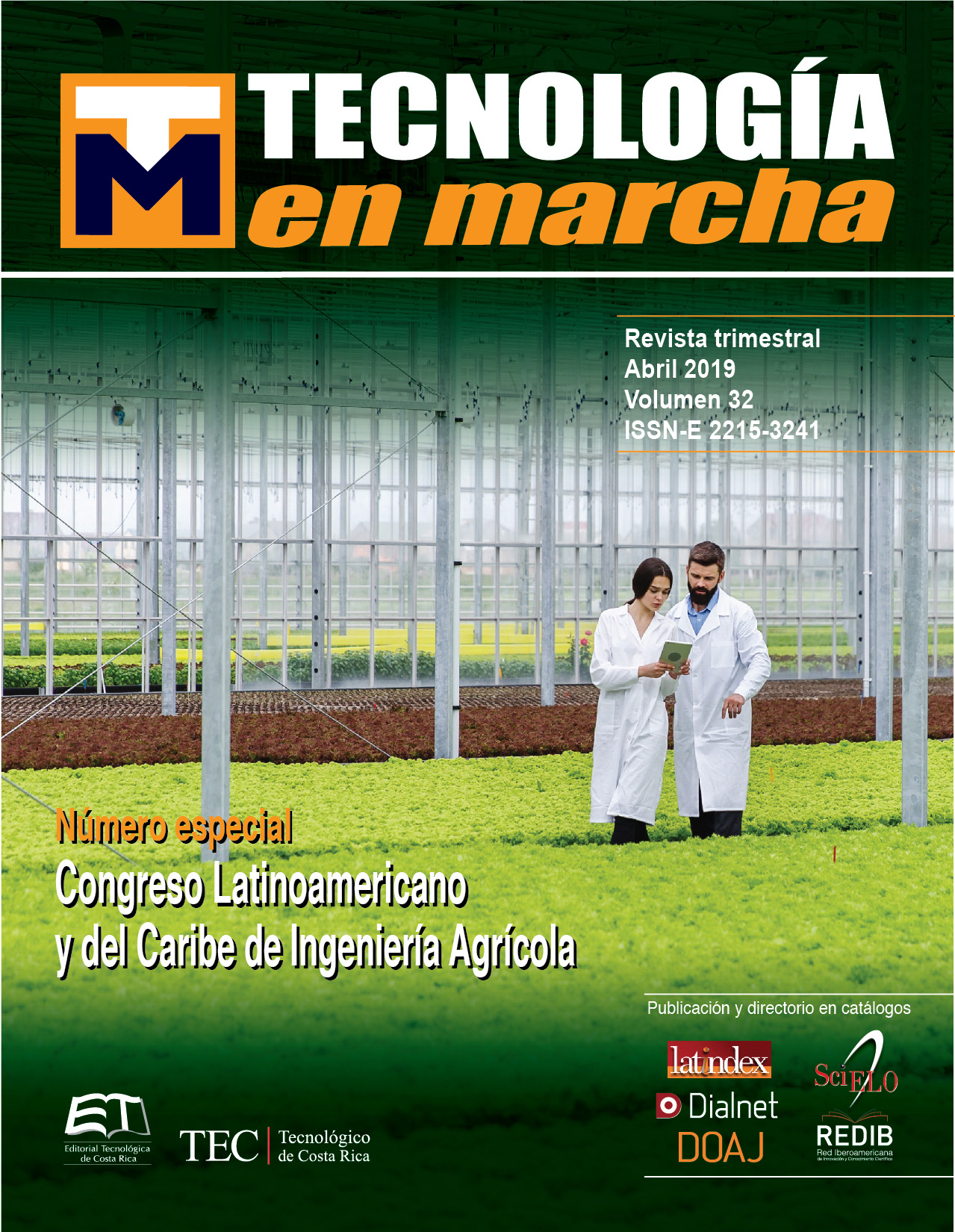Biodiesel production from Argemone pleiacantha Greene seeds
Main Article Content
Abstract
Biodiesel production as alternative fuel faces the challenge of having enough raw material that is not consumed as a food. Argemone is a kind of non-edible plants that grow in poor soils and dry environments. These plants are classified as weeds and therefore as undesirable. However, recent studies show that their seeds have a high oil content. The oil could be used for biodiesel production. Nevertheless, there are only a few studies about the yield and quality of biodiesel produced from A. pleiacantha seeds. The aim of this research was to identify the best treatments to obtain the greater yield of biodiesel. An experiment was established under a complete factorial experimental design 2x2x2 with three replications. The variable factors were methanol/ oil ratio (6:1 and 6:5 mol:mol), catalyst (KOH and NaOH) and catalyst concentration (0.5 and 0.75%). All three variable factors (catalyst, concentration of catalyst and methanol/oil molar ratio) had significant effects (p<0.05) on the yield of biodiesel and there was a significant interaction among these variables (p<0.05). The treatment with 0.5 % KOH and methanol/oil molar ratio of 6.5 produced a significant higher yield of biodiesel (p<0.05).
Article Details
Los autores conservan los derechos de autor y ceden a la revista el derecho de la primera publicación y pueda editarlo, reproducirlo, distribuirlo, exhibirlo y comunicarlo en el país y en el extranjero mediante medios impresos y electrónicos. Asimismo, asumen el compromiso sobre cualquier litigio o reclamación relacionada con derechos de propiedad intelectual, exonerando de responsabilidad a la Editorial Tecnológica de Costa Rica. Además, se establece que los autores pueden realizar otros acuerdos contractuales independientes y adicionales para la distribución no exclusiva de la versión del artículo publicado en esta revista (p. ej., incluirlo en un repositorio institucional o publicarlo en un libro) siempre que indiquen claramente que el trabajo se publicó por primera vez en esta revista.

